The Ultimate Guide To Good Food For Brain Function
Table of Contents
Introduction
Our brain is the command center of our body, controlling everything from our thoughts and emotions to our movements and bodily functions. Given its critical role, maintaining brain health is paramount. One of the most effective ways to support brain function is through nutrition. What we eat significantly affects our brain’s performance, from improving memory and cognitive function to preventing neurodegenerative diseases.
The Brain-Boosting Nutrients
Omega-3 Fatty Acids
Omega-3 fatty acids are essential fats that our body cannot produce on its own. They are crucial for brain health, playing a key role in building cell membranes and promoting new neuron formation. These fatty acids also have anti-inflammatory properties, which help protect the brain from damage and aging.
Antioxidants
Antioxidants shield the brain from oxidative stress, helping to prevent cellular damage. They combat free radicals, helping to maintain optimal brain function and reduce the risk of cognitive decline. Essential antioxidants encompass vitamins C and E, beta-carotene, and flavonoids.
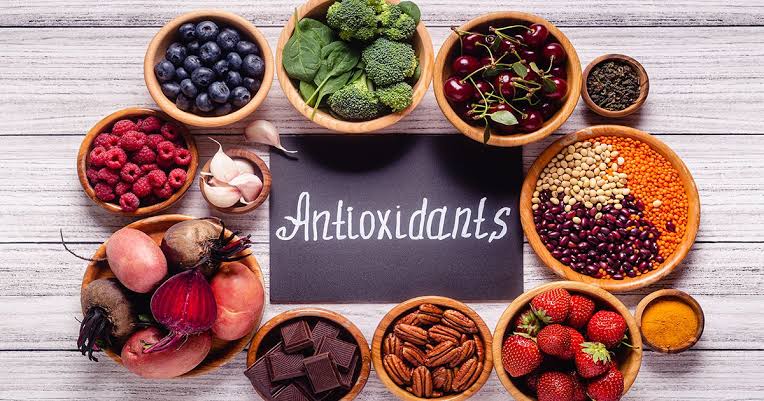
Vitamins and Minerals
Certain vitamins and minerals, such as B vitamins (B6, B12, folate), vitamin E, and magnesium, are vital for brain health. They aid in energy production, neurotransmitter synthesis, and overall brain maintenance. B vitamins, for instance, help reduce levels of homocysteine, an amino acid linked to increased risk of dementia and cognitive decline
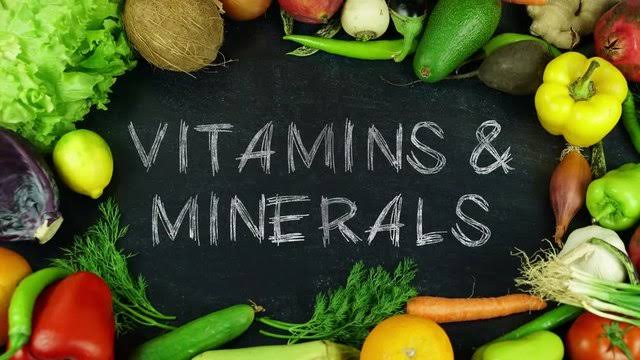
Amino Acids
Amino acids, the building blocks of proteins, are essential for the production of neurotransmitters, which transmit signals in the brain. For instance, tryptophan is a precursor to serotonin, a neurotransmitter that influences mood regulation. Tyrosine is another amino acid that is converted into dopamine, which is crucial for motivation and reward.
Top Foods for Brain Health
Fatty Fish
For instance, tryptophan is a precursor to serotonin, a neurotransmitter that influences mood regulation. These healthy fats are integral to maintaining brain structure and function. Omega-3s in fish help build cell membranes in the brain and promote anti-inflammatory and antioxidant processes that protect brain cells.

Berries
Berries, particularly blueberries, are packed with antioxidants. They help protect the brain from oxidative stress and may improve communication between brain cells. Flavonoids in berries have been shown to enhance memory and delay brain aging.
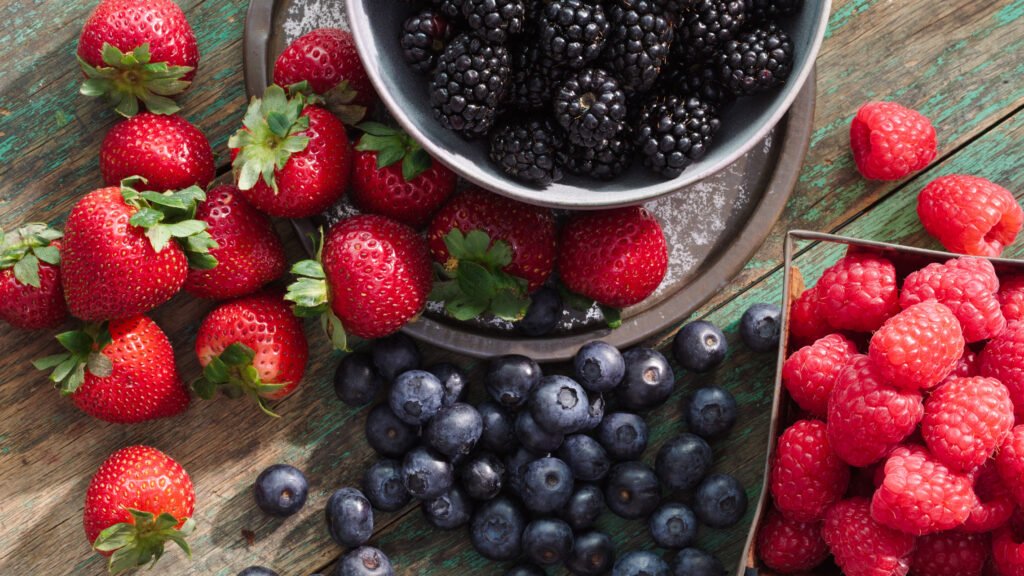
Nuts and Seeds
Nuts and seeds, especially walnuts and flaxseeds, provide a healthy dose of omega-3 fatty acids, antioxidants, and vitamin E, all of which support cognitive function. Walnuts, in particular, have a high concentration of DHA, a type of omega-3 fat that has been linked to better cognitive performance in adults.
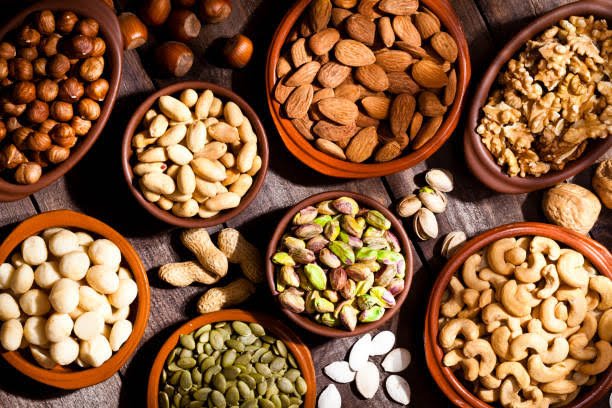
Leafy Greens
Leafy vegetables like spinach, kale, and broccoli are packed with antioxidants, vitamins, and minerals. They contribute to brain health by reducing inflammation and oxidative stress. Folate, vitamin E, and vitamin K in these greens are particularly beneficial for brain health.
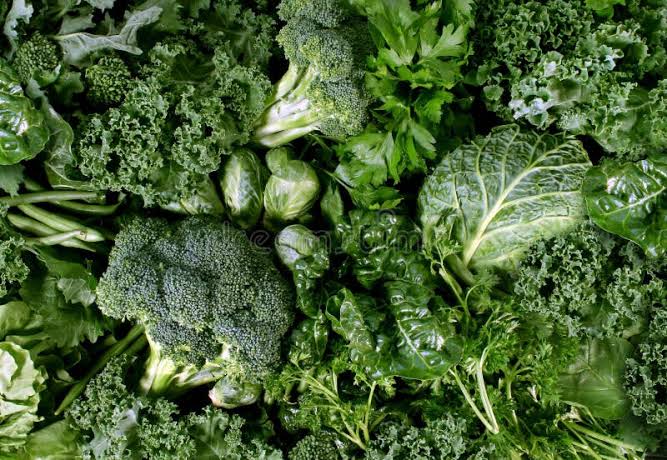
Whole Grains
Whole grains like oats, barley, and quinoa are excellent sources of complex carbohydrates. They provide a steady supply of glucose, the brain’s primary energy source, without causing spikes in blood sugar. Whole grains also contain fiber, which supports a healthy gut microbiome, linked to better brain health.
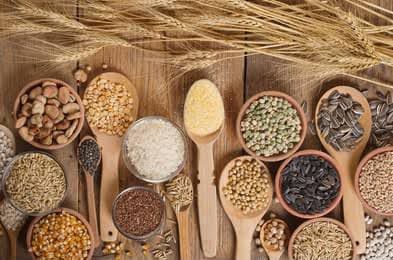
Avocados
Avocados are high in healthy monounsaturated fats, which support blood flow to the brain. They also contain folate, vitamin K, and potassium, which are essential for brain health. The healthy fats in avocados are linked to reduced blood pressure, which benefits cognitive function.
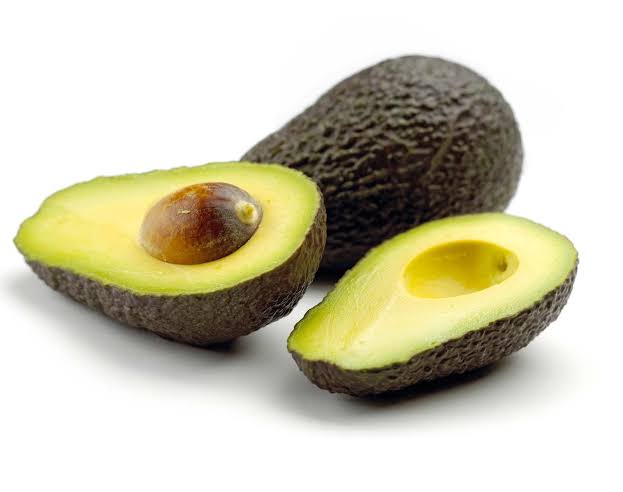
Eggs
Eggs are a great source of several nutrients tied to brain health, including vitamins B6 and B12, folate, and choline, a nutrient that aids in neurotransmitter production. Choline is essential for the production of acetylcholine, a neurotransmitter involved in memory and learning.

Dark Chocolate
Dark chocolate contains flavonoids, caffeine, and antioxidants. These components enhance memory, improve mood, and protect brain cells from aging. The flavonoids in dark chocolate improve blood flow to the brain and have been linked to better cognitive performance.
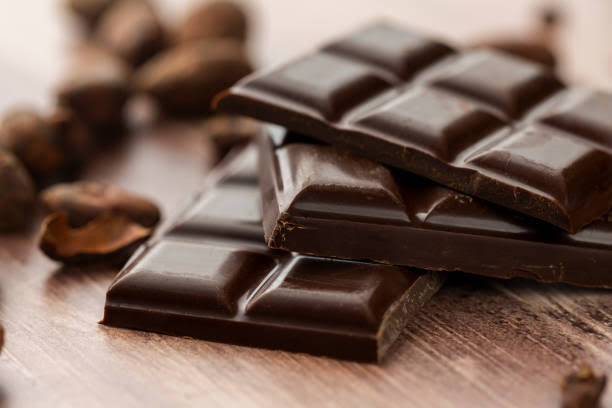
Turmeric
Turmeric contains curcumin, a substance renowned for its strong anti-inflammatory and antioxidant effects. It crosses the blood-brain barrier and has been shown to boost brain-derived neurotrophic factor (BDNF), a growth hormone essential for brain function. Curcumin also helps improve mood and reduce symptoms of depression.

Coffee
Coffee is a well-known cognitive enhancer due to its caffeine content. It increases alertness, improves mood, and boosts concentration. Caffeine blocks adenosine, a neurotransmitter that makes you feel sleepy, thereby keeping you alert. Coffee is also rich in antioxidants, which protect the brain from damage.

The Science Behind Brain-Boosting Foods
How Omega-3s Enhance Brain Function
Omega-3 fatty acids support the structure of brain cells and are involved in neuroplasticity, the brain’s ability to form new connections. Studies have shown that higher omega-3 intake is linked to improved cognitive function and a lower risk of neurodegenerative diseases.
Antioxidants and Brain Protection
Antioxidants, found abundantly in fruits and vegetables, protect the brain from oxidative damage. This protection is crucial for preventing cognitive decline and maintaining mental acuity. Flavonoids, in particular, have been shown to cross the blood-brain barrier and localize in regions involved in learning and memory.
Importance of B Vitamins
B vitamins, especially B6, B12, and folate, are essential for maintaining optimal brain function. They help produce neurotransmitters and maintain the health of brain cells, reducing the risk of cognitive impairment. Low levels of these vitamins are associated with higher levels of homocysteine, which is linked to brain atrophy and cognitive decline.
Role of Protein and Amino Acids
Proteins and their constituent amino acids are vital for brain health. Amino acids are precursors to neurotransmitters, and sufficient protein intake ensures that the brain has the necessary resources to function optimally. For example, the amino acid tyrosine helps produce dopamine, which is crucial for motivation and reward.
Dietary Patterns for Optimal Brain Health
The Mediterranean Diet
The Mediterranean diet, rich in fruits, vegetables, whole grains, nuts, seeds, and olive oil, is associated with numerous health benefits, including improved brain function and a reduced risk of Alzheimer’s disease. This diet emphasizes healthy fats, lean proteins, and a high intake of plant-based foods
The DASH Diet
The DASH diet, which stands for Dietary Approaches to Stop Hypertension, emphasizes lowering sodium consumption and incorporating nutrient-dense foods into the diet. It has been linked to better cognitive function and lower rates of cognitive decline. The diet emphasizes vegetables, fruits, whole grains, and lean proteins.
Plant-Based Diets
Plant-based diets emphasize whole, unprocessed foods, which are naturally high in brain-boosting nutrients. These diets are associated with a lower risk of neurodegenerative diseases and better overall brain health. They focus on vegetables, fruits, whole grains, nuts, seeds, and legumes.
Lifestyle Tips to Complement a Brain-Healthy Diet
Staying Hydrated
Adequate hydration is essential for brain function. Dehydration can impair attention, short-term memory, and long-term memory recall. Drinking plenty of water throughout the day helps maintain cognitive performance.

Regular Exercise
Physical activity increases blood flow to the brain and promotes the release of growth factors that enhance brain cell growth and survival. Regular exercise has been shown to improve memory, cognitive function, and overall brain health.

Adequate Sleep
Quality sleep is crucial for brain health. The DASH diet, which stands for Dietary Approaches to Stop Hypertension, emphasizes lowering sodium consumption and incorporating nutrient-dense foods into the diet. Poor sleep is linked to cognitive decline and impaired memory function.

Mental Exercises
Engaging in mentally stimulating activities, such as puzzles, reading, and learning new skills, helps keep the brain sharp and improves cognitive function. Activities that challenge the brain can create new neural connections and enhance brain plasticity

Potential Risks and Considerations
Food Allergies and Intolerances
Some brain-healthy foods may cause allergic reactions or intolerances in certain individuals. It’s important to identify and avoid these foods to prevent adverse effects. Common allergens include nuts, dairy, and gluten.
Balancing Macronutrients
While focusing on brain-boosting foods, it’s essential to maintain a balanced diet that includes adequate proteins, fats, and carbohydrates for overall health. An imbalance in macronutrients can affect brain function and overall well-being.
Avoiding Processed Foods
Processed foods often contain unhealthy fats, sugars, and additives that can negatively impact brain function. It’s best to limit their consumption and opt for whole, natural foods instead. Foods high in trans fats, for instance, are linked to impaired brain function and memory.
Conclusion
Maintaining optimal brain function requires a holistic approach that includes a nutrient-rich diet, regular physical activity, adequate sleep, and mental stimulation. By incorporating brain-boosting foods like fatty fish, berries, nuts, and leafy greens into your diet, you can support cognitive function, enhance memory, and reduce the risk of neurodegenerative diseases. Make these dietary and lifestyle changes today for a sharper, healthier brain tomorrow.
FAQs
How can an imbalanced macronutrient intake affect brain function?
An imbalance in macronutrients, such as consuming excessive unhealthy fats, sugars, and additives found in processed foods, can have a negative impact on brain function and overall well-being.
Why should I limit processed food consumption?
Supplements can be beneficial, especially if you have dietary restrictions or deficiencies. Still, it’s ideal to get nutrients from whole foods whenever you can.
Can children benefit from these brain-boosting foods?
Yes, children can significantly benefit from a diet rich in brain-boosting foods. Proper nutrition supports their cognitive development and academic performance.
Are there any foods that negatively impact brain health?
Yes, processed foods high in sugars, unhealthy fats, and additives can impair brain function and increase the risk of cognitive decline. It’s best to limit these foods and focus on a nutrient-dense diet.





good content
thanks for your feedback